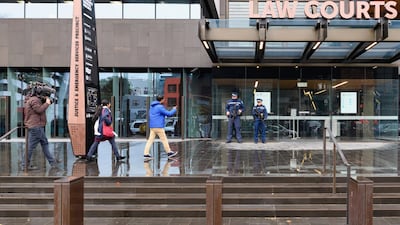A New Zealand judge has ordered the man accused of killing 50 people at two New Zealand mosques to undergo two mental health tests to determine if he is fit to enter pleas in the case.
High Court judge Cameron Mander made the order Friday during a hearing in which Brenton Tarrant, a 28-year-old Australian, appeared on video link from a prison room.
Relatives of victims and survivors, some in wheelchairs and hospital gowns, were in court to watch the proceedings.
The accused also faces 39 attempted murder charges in relation to the March 15 attack on two mosques in the city of Christchurch.
Mr Mander said the mental heath test order was a normal step in such a case.
The courtroom was filled with more than two dozen reporters and 60 members of the public. Some became emotional and wept.
Mr Tarrant was wearing handcuffs and a grey jumper. He showed little emotion during the hearing and will next appear in court on June 14.
New Zealand's Corrections Department revealed last month that the defendant was separated from other prisoners and could be observed constantly, either directly by staff or through CCTV cameras.
It said he had no access to television, radio or newspapers and no visitors.

